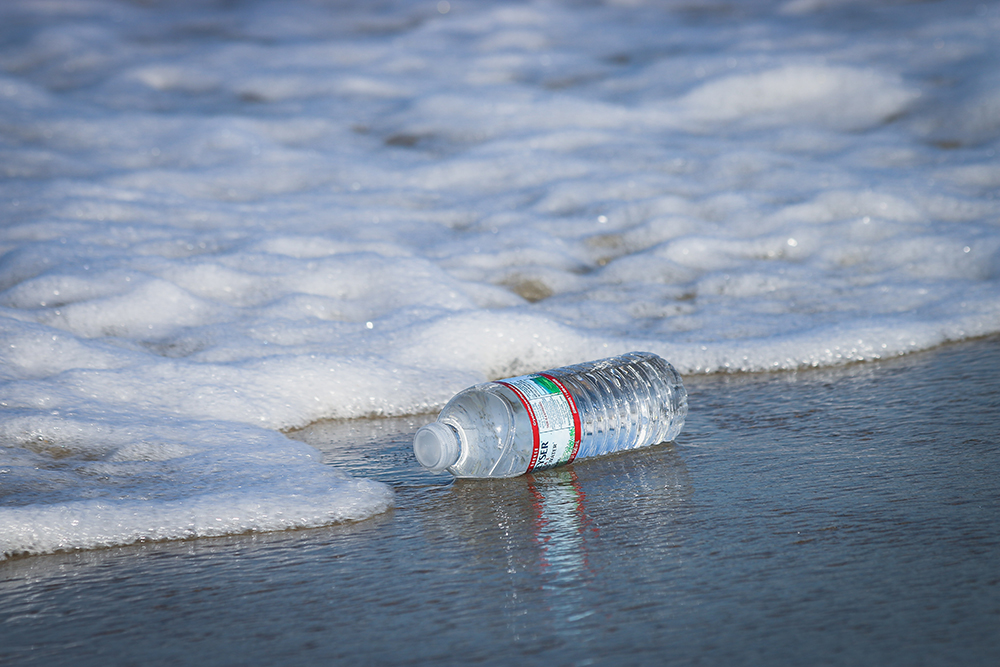Under an inky night sky, with stars visible as far as the eye could see, a couple friends and I pondered the possibility of life out in the ether. The stillness seemed to make time stand still and the pile of blankets promised optimal coziness while we put our brains to work.
“Of course we’re not the only intelligent beings in the universe!” one friend put forth, boldly. Only, I was soon to counter with something my good ol’ Grandad had always encouraged me to think about:
With conditions to support life on earth needing to be so very specific and our sensitivity to minuscule changes so incredibly acute, how the hell could anything else exist? The distance from the sun, the temperature range, the atmospheric composition… It’s a bloody miracle we’re here, really!

Water is the lifeblood and it’s one of the most potent limiting factors for the success and proliferation of life on this planet. What an irony, when we consider that the majority of Earth is covered in ocean. And the blatant disbelief if you happen to reside in a community frequently drenched in rainfall.
We are water. It’s what keeps our cells turgid and allows them to communicate with one another and forms the foundation of everything we do. Without it, we perish. Only, we’re polluting our water supplies with everything from the contraceptive pill to plastic and petroleum. This precious commodity is taken for granted and disrespected. Frighteningly close calls with dry taps are a reality for many; just look at last year’s situation in South Africa and you realize how quickly and dramatically things can take a turn for the worse when one of life’s essentials is under threat. Hostility and violence often ensue as we come face to face with our more primitive selves.
The developed countries that are known powerful players on the global stage have an obligation not only to do the best they can as a responsibility to the planet as a whole, but to set a good example for others to follow suit. Tragically and alarmingly, we simply don’t see this. Our so-called “leaders” preach based not on facts, but on painfully misinformed opinions, often with the sole purpose of furthering financial gain via corporate interests.
The US government has done little to prioritize critical environmental matters in recent years, despite a staggering collection of scientific data from around the world. From denying climate change to devastating native wildlife to decimating fragile ecosystems all in the name of narrow-minded and—frankly—outdated ideologies, the latest bizarre retaliation should come as no surprise. Just last week, amidst the impeachment frenzy, President Trump took to criticizing water conservation efforts for being not only useless, but unnecessary. He recently blamed our water shortage on people “flushing the toilet 10, 15 times” and argued for deregulation of water usage, claiming that there’s plenty of water around: “It comes down. It’s called rain.”
Here’s why Trump is mistaken: it is a common myth that water is a renewable resource when in fact, every single molecule of water that has ever been and ever will, is now present on Earth. That means whatever water we use and expel as gray water or urine, has to be cleaned and make its way back through the cycle before reaching us again as clean, freshwater. Water shortage happens when we are using up water at a rate faster than it is being replenished. And currently, we are doing exactly that.
Little surprises me anymore, but I’d like to point out that this comes about in suspicious parallel to the ongoing water wars taking place against global giant, Nestlé. Corporate chaos has been stirring for a while now, in the battle of what is effectively the US public against the food & beverage giant, in multiple attempts to prevent the company from privatizing public water supplies. In a win for the people of Osceola, Michigan, Nestlé has just been overruled—denied the right to claim that supplying the water (taken for free and sold back to the public) is “a public service.”

As more and more water is extracted from the land, the water table drops. When this happens, it becomes harder to recharge groundwater supplies, upon which everything in a given area depends.
Who owns the water? Any of it? We recently discussed land use management among indigenous peoples and how these communities around the world are hold the key to untapped wisdom regarding the solutions to our environmental problems. As resources dwindle, indigenous peoples are increasingly being displaced; it remains to be settled who should provide compensation for the loss of spiritual homelands as a result of careless exploitation, habitat destruction and pollution.
When it comes to the most basic of resources such as water, the priority should always be for the health and well-being of the people who depend upon it. Above any corporate greed and selfish gain, it is our responsibility to ensure we maximize the health of our ecosystems and that of future generations. Seems logical, doesn’t it? Yet we continue to scramble ever further in the opposite direction.
It can often feel like these faceless corporations are unstoppable forces, but remember that they speak in dollar bills. Where you choose to spend yours helps to shape the kind of world that you want for yourself, your loved ones and those who will follow in your footsteps. When it comes to your water, wherever possible, support your public or local supply. And the next time you think about purchasing something packaged, pause for a moment to question from whence it came. It makes all the difference.
__




